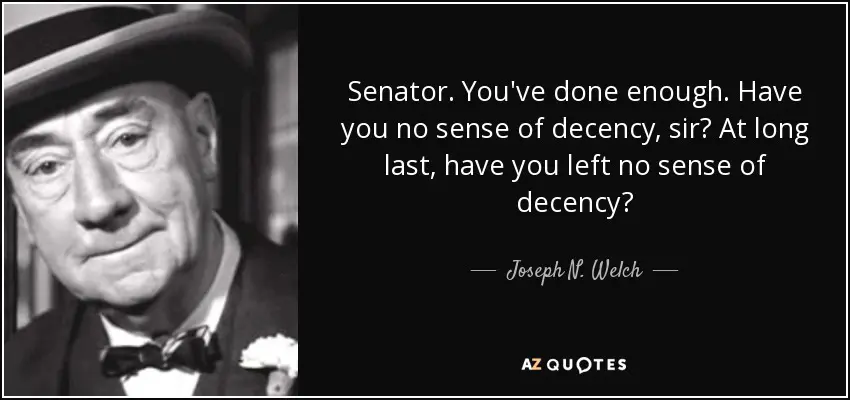McCarthyism refers to the anti-communist political repression and paranoia that swept the United States in the 1940s and 1950s, beginning during the tenure of its originator: Republican Senator Joseph McCarthy from Wisconsin. It was a period of intense fear and suspicion of communism during the Cold War that manifested in government investigations, trials, and blacklisting of individuals suspected of being communists or communist sympathizers. The era was marked by a pervasive fear of subversion and betrayal, as many Americans believed that communists were working to infiltrate and undermine American institutions.
The roots of McCarthyism can be traced back to the early 20th century, when communism was viewed as a major threat to Western democracy. The Russian Revolution of 1917 and the rise of the Soviet Union fueled anti-communist sentiment in the United States, which intensified during the Red Scare of the 1920s. However, it was not until after World War II that anti-communist fervor reached its peak.
National anti-communist paranoia
In 1947, President Harry S. Truman issued Executive Order 9835, which established a loyalty program for federal employees. The program required all federal employees to undergo a background check and sign a loyalty oath, swearing that they were not members of the Communist Party or affiliated with any other subversive organization. The program was intended to weed out any suspected communists from the federal government, but it soon became the basis for a broader campaign of anti-communist witch-hunts.
In 1950, Senator Joseph McCarthy rose to national prominence with his claims of widespread communist infiltration in the federal government. In a speech in Wheeling, West Virginia, McCarthy claimed to have a list of 205 known communists in the State Department. He provided no evidence to support his claim, but the speech propelled him to the national spotlight and began a period of intense media fascination with the Senator’s provocative claims.
Over the next several years, McCarthy became the face of the anti-communist crusade. He chaired the Senate Permanent Subcommittee on Investigations and conducted public hearings and investigations into suspected communist activity. Many of his targets were innocent, and his tactics often included intimidation, character assassination, and guilt by association.
Army-McCarthy hearings
McCarthy’s tactics eventually led to his downfall. Between April and June of 1954, he conducted televised hearings to investigate alleged communist influence in the Army. The hearings were a disaster for McCarthy, as he made unfounded accusations and engaged in verbal attacks on witnesses. As the hearings progressed, McCarthy’s behavior became increasingly erratic and confrontational. He bullied and intimidated Army officials and witnesses, often interrupting them and accusing them of lying. His behavior turned public opinion against him, and the hearings marked the beginning of his decline.
The turning point of the hearings came when Army counsel Joseph Welch famously confronted McCarthy after he had attacked a young lawyer in Welch’s law firm:
“Senator, you’ve done enough. Have you no sense of decency, sir, at long last? Have you left no sense of decency?”
Joseph N. Welch, Army chief counsel

The exchange was a defining moment in the hearings, and it marked the beginning of the end for McCarthy’s political career after millions of Americans witnessed his aggressive demagoguery. In fact it went on to become one of the most famous moments in the history of congressional hearings, and is often cited as an example of the power of a well-timed and well-delivered rhetorical response.
The hearings ultimately failed to uncover any evidence of communist infiltration in the Army, but they did expose McCarthy’s reckless and abusive tactics and damaged his reputation. They also demonstrated the power of televised hearings in shaping public opinion and holding government officials accountable.
Historical influence of McCarthyism
McCarthyism had far-reaching consequences for American society. Thousands of people were investigated, blacklisted, and lost their jobs or were denied employment on suspicion of being communist sympathizers. The entertainment industry was particularly hard hit, with many actors, writers, and directors being blacklisted for their political beliefs. The unfounded smears against Hollywood contributed to a negative sentiment on the right-wing that continues even to this day.
The era of McCarthyism also had a chilling effect on free speech and political dissent. Many people were afraid to express their opinions or engage in political activism, for fear of being labeled a communist or communist sympathizer. The era demonstrated the dangers of political repression and the importance of protecting civil liberties and freedom of expression.
McCarthyism was a dark period in American history that was characterized by political repression, paranoia, and fear of communism. It was fueled by the perceived threat of subversion and betrayal, and it led to the persecution of innocent people, the erosion of civil liberties, and a chilling climate of fear and suspicion. The legacy of McCarthyism serves as a cautionary tale about the dangers of political repression and the importance of protecting free speech and civil liberties in a democracy.
Comments are closed.